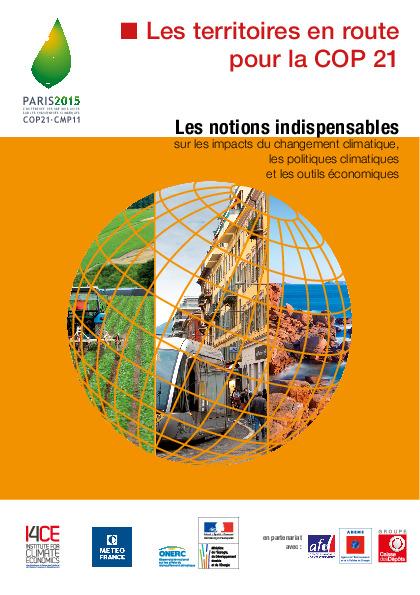Sub-national stakeholders heading towards the COP 21
Co-written by I4CE, ONERC and Météo-France, in partnership with ADEME and AFD, the booklet “Sub-national stakeholders heading towards the COP 21” gives direct free and instructive access to the most recent knowledges on climate change.
The booklet presents to subnational, public and private actors, the context, tools and actions taken by french locals to mitigate their greenhouse gas emissions and adapt to climate change. The main work of Cities, Local Governments, Energy and Climate Change Club is divided into 37 chapters on:
![]() The impact of the Climate Change
The impact of the Climate Change
![]() Climate politics implemented at the global, european and french level.
Climate politics implemented at the global, european and french level.
![]() Economic and technical tools available to local governments
Economic and technical tools available to local governments
Awarded the “COP 21” label, this booklet is consistent with the France’s policy on developing a climate change deal which puts forward a “positive calendar” that will support the negociation process in Paris, 2015.
